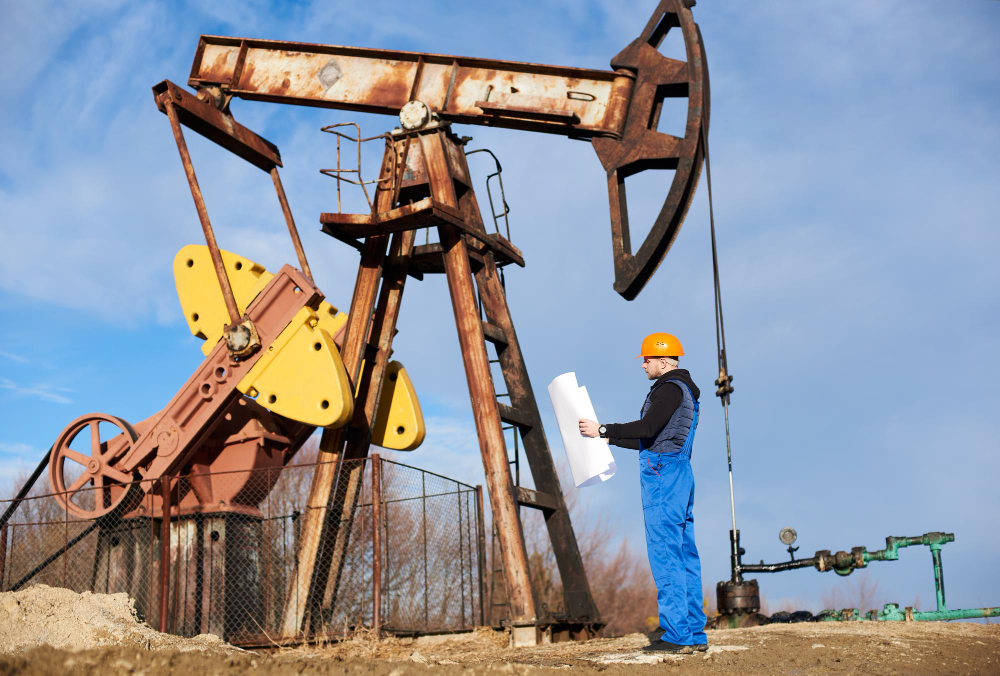The oil and gas industry’s backbone is its pipeline infrastructure, which is crucial for these vital resources’ safe and efficient transportation. However, selecting the most appropriate pipeline material poses a significant challenge, demanding a careful analysis of various factors to ensure longevity, reliability and cost-effectiveness. Here, you get to read the intricacies of choosing the best pipeline material, focusing on steel pipes for construction and offering invaluable insights for optimizing this selection.
Unveiling The Spectrum Of Pipeline Materials
Pipeline materials for oil and gas, such as carbon steel, alloy steel and non-metallic options, meet rigorous demands. Each material offers unique benefits tailored to specific conditions and requirements, making understanding their properties and applications essential.

- Carbon Steel: The most widely used material, carbon steel pipes for construction, is favored for its durability and cost-effectiveness. Versatile for various conditions, but needs protective coatings to prevent corrosion from temperature and pressure fluctuations.
- Alloy Steel: For more challenging conditions, alloy steel pipes for construction offer enhanced strength and resistance to corrosion and extreme temperatures. Incorporating elements like chromium, molybdenum and nickel, alloy steel is ideal for high-pressure applications and areas with corrosive materials.
- Non-Metallic Materials: In applications where corrosion is a significant concern, non-metallic materials, such as HDPE and fiberglass, offer excellent resistance. Lighter, easier installation, ideal for specific scenarios despite temperature and pressure limits.
Key Considerations For Material Selection
Choosing the right pipeline material involves a comprehensive evaluation of several critical factors:
Environmental Conditions: Corrosive substances, temperature extremes and physical location (e.g., underwater or underground) greatly impact material choice. Steel pipes for construction, particularly alloy steel, are often preferred for their adaptability to various environments.
- Mechanical Properties: The material’s strength, flexibility and durability are crucial under operational pressures and temperatures. Steel pipes for construction, especially carbon steel, offer the required robustness for most oil and gas applications.
- Economic Viability: Cost-effectiveness encompasses the initial investment, maintenance, repair and longevity. Carbon steel pipes for construction strike an optimal balance between quality and affordability.
- Regulatory Compliance: Adhering to industry standards and regulations ensures safety and operational efficiency. Steel pipes for construction are widely recognized for meeting stringent industry norms.
- Sustainability: Opt for recyclable, long-lasting steel pipes for construction, aligning with eco-friendly practices and industry sustainability goals.
Strategies To Refine Your Material Selection Like Steel Pipe For Construction
To optimize pipeline material choice, ensure it meets current needs and adapts to future challenges strategically. Here are some tips to enhance your selection process:
- Comprehensive Risk Assessment: Evaluate potential risks, including corrosion, material fatigue and environmental impact. With their durability and corrosion resistance, steel pipes for construction often emerge as a safe choice.
- Consultation with Experts: Collaborating with engineers and material specialists can provide deeper insights into the advantages and limitations of different materials, including steel pipes for construction.
- Investment in Quality: Opting for higher-grade materials, such as alloy steel pipes for construction, can offer greater reliability and longevity, reducing long-term costs and enhancing safety.
- Innovative Protective Measures: Utilizing protective coatings, cathodic protection and other innovative technologies can extend the life of materials like carbon steel pipes for construction, ensuring they withstand harsh conditions.
- Flexibility and Scalability: Consider materials that allow for future expansion and adaptation to new technologies. Steel pipes for construction offer the scalability needed to meet evolving industry demands.
Boost Your Pipeline Success with Bigfoot Pipe And Piling!
Are you searching for the perfect steel pipes for construction in your oil and gas projects? Look to Bigfoot Pipe And Piling for the solution you’ve been seeking. Our unmatched expertise in sourcing and providing top-quality steel pipes ensures your project’s success.
Don’t settle for anything less than excellence. Contact us today to discover the ideal steel pipes for construction that will elevate your project to new heights. Trust us to meet your material needs, and let’s build a stronger, more efficient future together.
